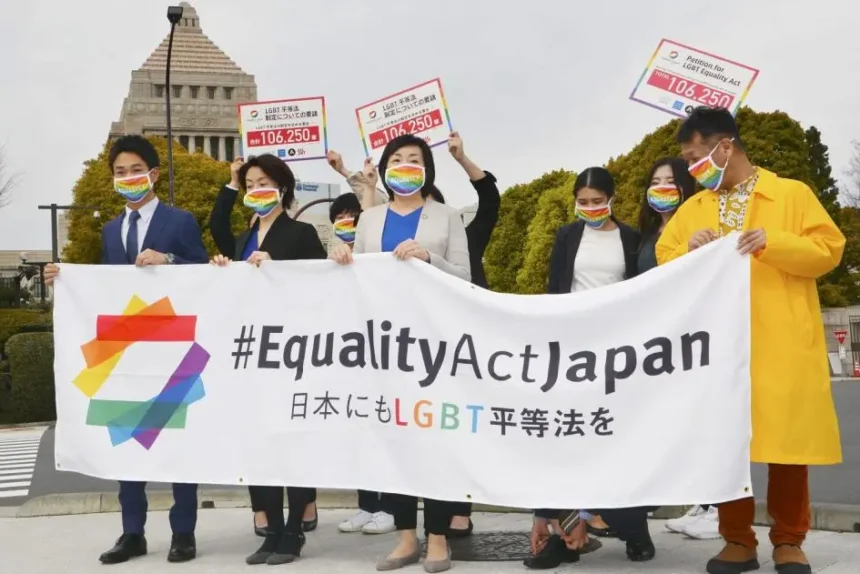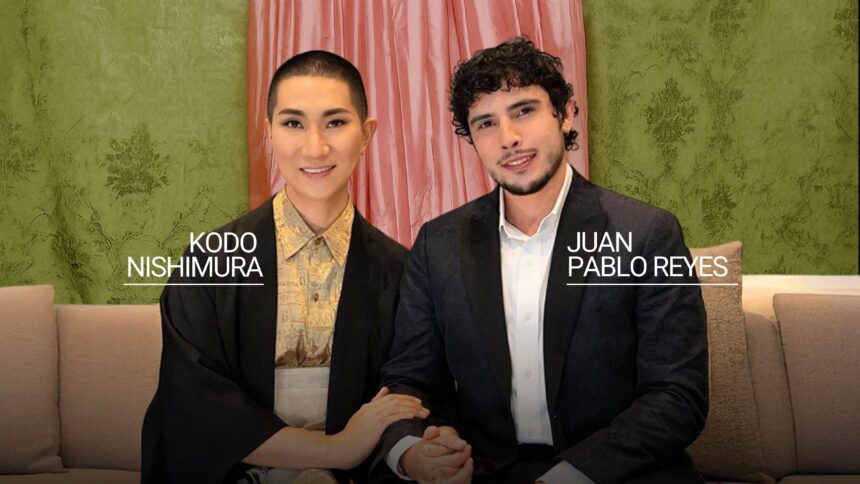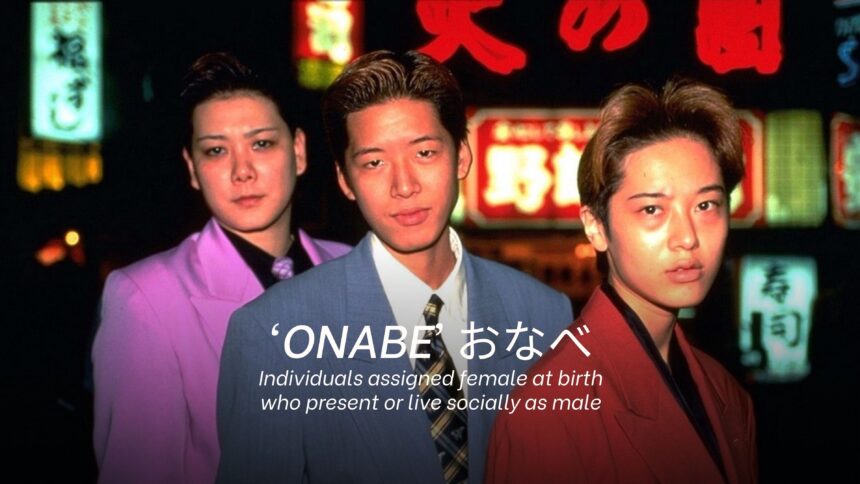LGBTQ+ Rights and Law in Japan
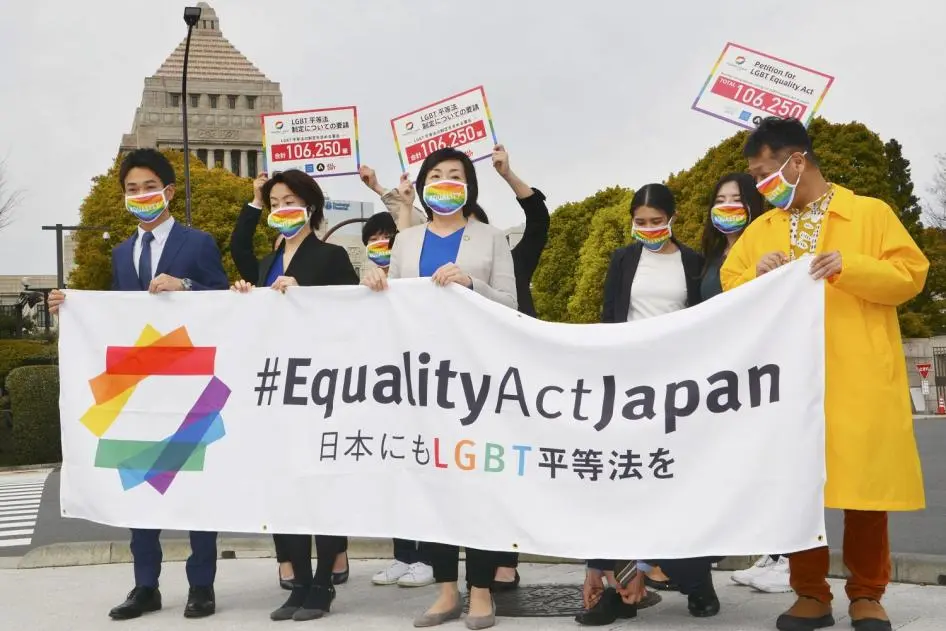
In Japan, LGBTQ+ people’s legal rights are still not very well-known, even among people living here. As a queer person living in or visiting the country, you may have a few questions about LGBTQ+ rights in Japan, and might be worried about how Japan’s laws could discriminate against you.
In this article, I’ll go over the basics regarding official laws on the books that relate to LGBTQ+ people in Japan. This way, you can know which rights you do and don’t have in order to more safely and comfortably plan your trip, or your future life in Japan.
All Laws Pertaining to LGBTQ+ People in Japan
Same-Sex Marriage
Year of Implementation
Along with other articles of the Constitution of Japan, Article 24, which outlines the restrictions on marriage in Japan, was put into effect in 1947.
Meaning of the Statute
Article 24 of the Constitution of Japan states “Marriage shall be based only on the mutual consent of both sexes and it shall be maintained through mutual cooperation with the equal rights of husband and wife as a basis.”
While this article is primarily used to prevent forced marriage, it also explicitly explains that marriage in Japan is between a man and a woman, which makes protections for same-sex couples more difficult.
How Did This Statute Come About?
When a new Japanese constitution was drafted after World War II, Article 24 was introduced as a form of marriage protection alongside many other protections for Japanese citizens. While its presence is important, I believe it should be expanded to include same-sex married couples.
Parties Helping to Improve The Situation
Organizations such as Marriage for All Japan, a lobbying and outreach group, are pushing to change Article 24 to include same-sex couples.
Same-Sex Unions Recognized by Various Cities and Prefectures
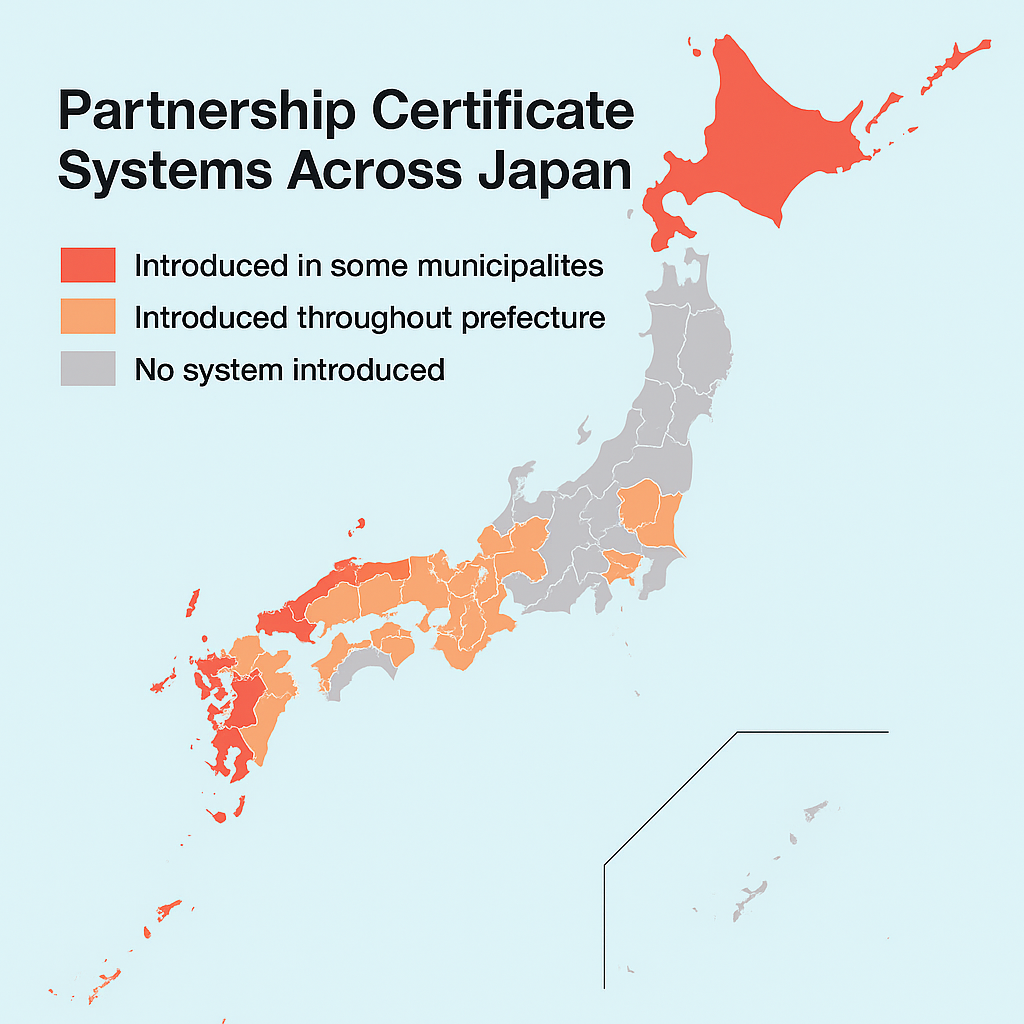
Year of Implementation
Since different prefectures and cities began to recognize same-sex unions at different times, there’s no specific date when it started. However, the first municipality to recognize same-sex unions was the Shibuya ward of Tokyo in 2015, mainly for the purpose of hospital visits and sharing a rented apartment. Since then, various Japanese cities and prefectures have begun issuing similar partnership certificates to same-sex couples.
Meaning of the Statute
While a same-sex union doesn’t grant all of the rights of a legal marriage, it is a step in the right direction to allow same-sex couples to be legally recognized as a family. However, these cities still don’t have any legal obligation to recognize the certificate, but the certificate can help in proving to hospitals and other institutions that two people of the same sex are recognized as a couple.
How Did This Statute Come About?
Shibuya Ward in Tokyo was the first municipality to issue partnership certificates, and from there, wards, cities, and prefectures such as Setagaya, Yokohama, Osaka, Kyoto, Sapporo, Fukuoka, and Hiroshima have followed suit in also making similar partnership certificates available.
Parties Helping to Improve The Situation
Besides the organizations listed above, many lawmakers on the city and prefectural level have helped to make these partnership certificates possible, creating a form of voluntary identification for same-sex couples.
Legal Recognition of Transgender People
Year of Implementation
An original law was implemented in 2003 that allowed transgender people in Japan to change their gender on legal documents, but it came with a variety of requirements. In 2023, some of the requirements were ruled as unconstitutional, bringing us to the precedent in place today.
Meaning of the Statute
Originally, transgender people could change their gender on legal documents only if they were over 18 years old, unmarried, had no children under the age of 18, were undergoing sex reassignment surgery, and had undergone medical sterilization.
In 2023, the Japanese Supreme Court ruled the requirement for sterilization as unconstitutional. Even so, the requirement is still technically in the books, but a precedent has been set allowing legal gender change without requiring sterilization.
There are still a few requirements for a change of legal gender that seem unjust, such as that of being unmarried, and of not having a child younger than 18. But, at least this legislation is moving in the right direction.
How Did This Statute Come About?
Since its inception in 2003, this law has consistently received pressure from organizations such as Human Rights Watch for its discriminatory and unnecessary elements. Pressure from human rights groups, LGBTQ+ advocacy organizations, and general international pressure surely played a role in setting the current, less discriminatory precedent.
Parties Helping to Improve The Situation
International organizations such as Human Rights Watch, and advocacy organizations like the International Lesbian, Gay, Bisexual, Trans, and Intersex Association (ILGA), are working to further amend the law by shining light on issues with it that remain today, such as overly strict requirements to be unmarried and not currently raising a child.
Same-Sex Adoption
Year of Implementation
As of 2024, Tokyo wards such as Adachi and Setagaya, and prefectures such as Aichi and Tottori have adopted a “familyship system” in which members of a same-sex couple who aren’t the biological parent of a child can legally designate children living in their household.
Meaning of the Statute
This means that same-sex partners who aren’t biological parents of a child can make medical decisions for their child, pick them up from school, etc.
However, this still requires one member of a same-sex couple to be the biological parent of the child, and doesn’t allow a same-sex couple to adopt a child that neither is the biological parent of.
How Did This Statute Come About?
Starting with cities like Adachi, Tokyo in 2021, many municipalities across Japan have followed suit in adopting this system.
Parties Helping to Improve The Situation
Organizations such as Nijiiro Kazoku (Rainbow Family) help to connect LGBTQ+ people who are raising children to each other, and give information to those looking to start a family. Although they aren’t directly legally involved in improving laws regarding same-sex adoption, they are helping to socially normalize LGBTQ+ people raising children in Japan.
Anti-Discrimination Laws for LGBTQ+ People
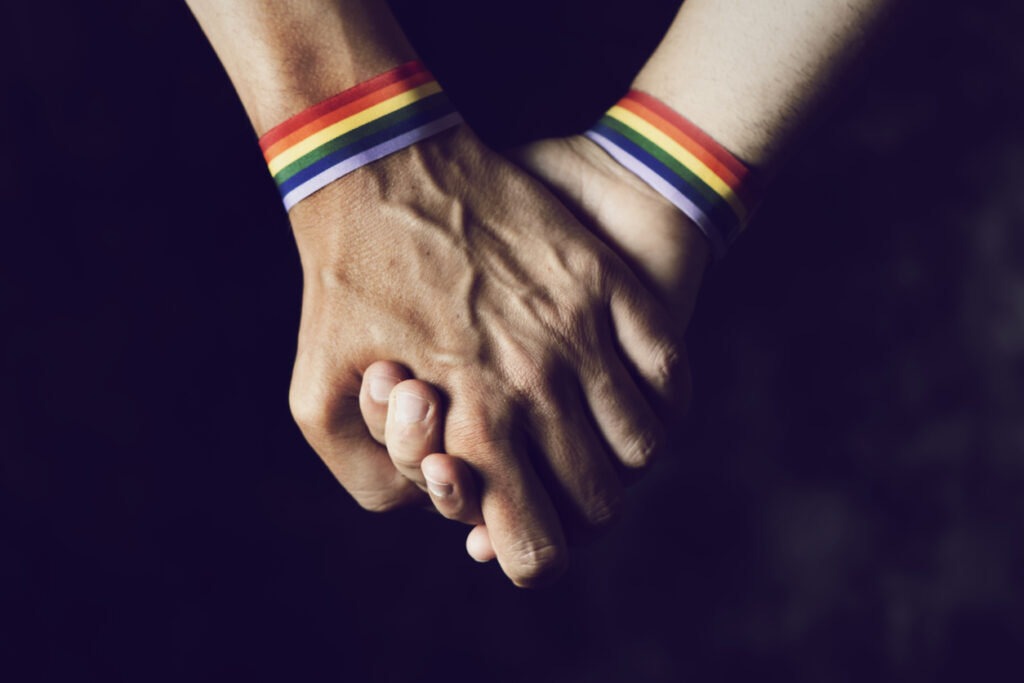
Year of Implementation
Although there is unfortunately no nationwide law, various prefectures such as Tokyo, Ibaraki, and Akita passed their own laws prohibiting any type of discrimination based on sexual orientation and/or gender identity. These laws are relatively recent, having come into practice between 2018 and 2022.
Meaning of the Statute
The respective laws in each prefecture prohibit discrimination based on sexual orientation or gender identity. That being said, areas where these protections are in place are unfortunately sparse, and these anti-discrimination laws don’t override the national non-recognition of same-sex couples getting married, adopting, and so on.
How Did This Statute Come About?
The passing of these regional laws likely came about due to international pressure, as well as the pressure from Japanese LGBTQ+ advocacy groups, and the work of local government officials in each prefecture.
Parties Helping to Improve The Situation
Along with human rights groups and advocacy groups, various political parties in the Japanese parliament are in favor of passing a nationwide anti-discrimination law on the basis of gender identity and sexual orientation. These parties include the Constitutional Democratic Party, the Democratic Party for the People, the Independents, the Japanese Communist Party, the Liberal Party, and the Social Democratic Party. While no such law has passed, there is considerable support for such a law in Japan’s parliament, although not the majority support required for it to pass.
Conclusion
LGBTQ+ rights in Japan may not be the most progressive, but it is definitely moving in a positive direction. While we all hope for a more open ruling in Japan, it is still rarely a hostile place for queer people to live.
In the meantime, I hope this article helped to inform you about what is and isn’t possible as an LGBTQ+ person living in Japan, so you can fully know your rights!

